The Anglo Soviet invasion and occupation of neutral Iran
On August 25th 1941, Britain and the Soviet Union invaded Iran. The occupation secured the Allies continued access both to Iranian oil fields and to the so called Persian Corridor, the Allies' military supply line from the Persian Gulf through Iran and into the Soviet Union, which was under heavy attack at the time by Nazi Germany.
Although the treaty of alliance between the British and Soviet governments promised to respect the territorial integrity of Iran, the invasion and subsequent occupation of neutral Iran had an undeniably catastrophic impact on the country.
1940 was a crucial year for Britain. The Battle of Britain raged for months in the skies of Britain, British tanks went head to head with German tanks in North Africa, and the Royal Navy fought the Italians for control of the Mediterranean.
Their planes, tanks and ships all needed vast quantities of oil to keep running and much of that oil came from Iran, especially from the Abadan Refinery. Consequently, losing the refinery would be disastrous for the British.
On the other hand, Reza Shah Pahlavi's reliance on German technology for his so called development plans had worried the allies who feared the Germans might make Iran a base for operations against the Soviet Union.
Although the Shah maintained the country's neutrality during World War Two, the British refused to accept this and accused Reza Shah of supporting the Nazis.
Iran reaffirmed its neutrality, but the writing was on the wall for invasion, which came after Hitler's forces managed to roll into the Soviet Union on June 22nd 1941. They quickly captured their objectives and pushed deep into the USSR threatening the Caucasus.
It was almost a certainty that if the Third Reich succeeded, and the Germans occupied the Caucuses and then pushed on to Iran and the Persian Gulf, they would then outflank the British positions in the Middle East.
But even worse, the Germans had cut off the USSR's key ports. Stalin desperately needed military supplies from Britain and the USA to maintain the fight against the Axis.
Without the ports the best way to get these supplies was via the Trans-Iranian Railway, part of the Persian corridor, which connected the Persian Gulf to the Caspian Sea.
In July 1941, British and Soviet diplomats demanded that the Shah expel any Germans living in the country, which he refused to enact.
On August 17, another demand to expel all Germans was issued to the Shah. He rejected this demand as well.
One week later, the tanks rolled in. Soviet forces marched into the north of the country, as hundreds of Soviet bombers thundered in the skies above. The north of Iran was lost to the Soviets on August 26th.
At the same time, British forces, mostly Indians, attacked in the south.
The Royal Air Force then flew in and bombed Tehran and Qazvin. They were aiming for military targets, but bombing in 1941 was much more miss than hit, consequently, several hundred civilians were killed.
British paratroopers secured the Abadan refinery and then engaged Iranian forces.
By August 26th the British had captured the entire region, while Tehran shuddered from explosions of both British and Soviet bombs.
Reza Shah demanded the ambassadors of the invaders explain themselves. Both said it was because of German residents in Iran. When the Shah asked if they would stop after he kicked the Germans out no answer was given.
On August 27 the British advanced to Ahwaz from where they drove north, captured Qazvin and linked up with the Soviets.
By August 28, the Iranian situation was hopeless. The Soviets threatened to completely flattened Tehran with bombs, and the British blockade was already causing food shortages.
August 29th, four days after the invasion began the Shah ordered a ceasefire as continued resistance was hopeless in the face of combined Soviet and British firepower.
The Persian corridor became the primary route for supplies to reach the Soviet Union.
The Anglo Soviet invasion brought about seismic changes, one of which was the abdication of Reza Shah. Although the Iranians' reactions were mixed, they were happy to see the end of the tyrannical rule of Reza Shah, yet, at the same time they were fearful of an uncertain future.
The unceremoniously dethroned Reza Shah was replace his 21 year old son, Mohammed Reza, who had until then been cloistered at a Swiss boarding school, or else cocooned at court, and was not in the least prepared for rule, making him the perfect puppet, manipulated by Western powers for almost four decades.
During the three year occupation of Iran, Joseph Stalin expanded Soviet political influence in Azerbaijan and Iranian Kurdistan in northwestern Iran, as well founding the communist Tudeh Party of Iran, whose members were absolutely subservient to their Soviet masters.
When the deadline for withdrawal arrived on the second of March 1942, Moscow refused to leave justifying its continued presence in Iran as essential in countering threats to Soviet national security.
Soviet troops did not withdraw from Iran until 1946, following Iran's official complaint to the newly formed United Nations Security Council, which became the first complaint filed by the country in the UN's history and a test for the UN's effectiveness in resolving global issues in the aftermath of the war.
However, the UN Security Council took no direct steps to pressure the Soviets to withdraw.
There are many takeaways from the Anglo Soviet invasion of Iran, for example, public resistance against foreign invaders was not significant.
As in the case of the US led invasion of Iraq, the general population were not motivated enough to sacrifice their lives for the sake of a tyrannical system.
Or, for example, Reza Shah's lack of deep understanding of international relations, and his blind sympathy for Nazi Germany, cost him and the country dearly.
But perhaps the most important lesson the nation learned was the unreliability of the West. Iranian neutrality was ignored, and the country lost its independence to the Anglo Soviet occupying forces.
The British and Soviet authorities dominated the use of major roadways and the Trans Iranian Railroad for their own purposes, even deploying Iranian manpower and equipment for the war effort.
With few resources left for farming, compounded by a bad harvest in 1942, and an enormous influx of European refugees, famine spread and many people died. Instability within the political and social arenas grew and the economy suffered.
With this humiliation, the Iranian people realized that the West doesn't care about neutrality if that neutrality is not going to serve their interests.
All these bitter lessons have left a mark on the collective unconsciousness of the Iranian nation and delineated their interaction with the Western world in the years after the victory of the 1979 Islamic revolution.
Press TV’s website can also be accessed at the following alternate addresses:

US congress urged to act against mass layoffs

US alliances in tatters under Trump, Koreans worried

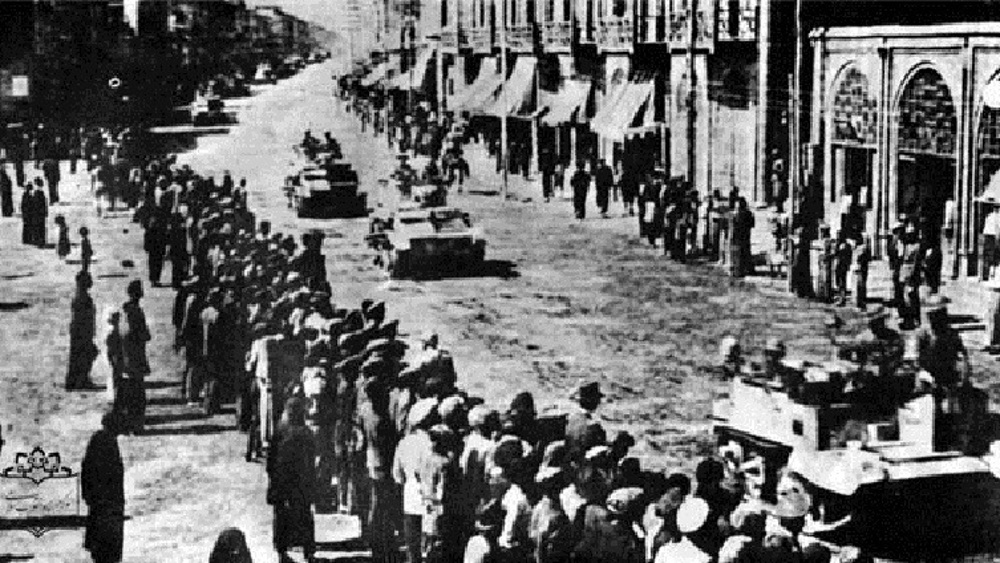
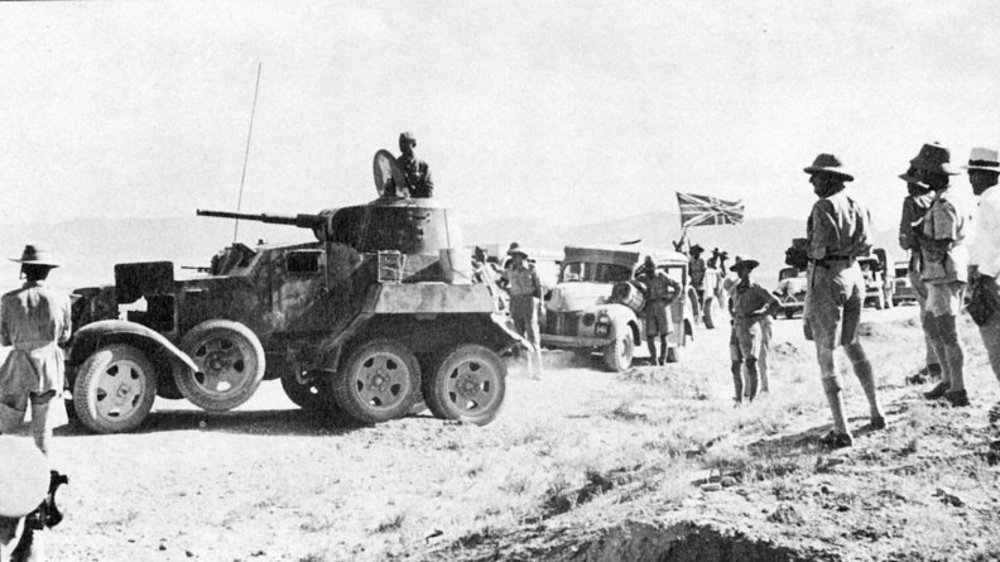
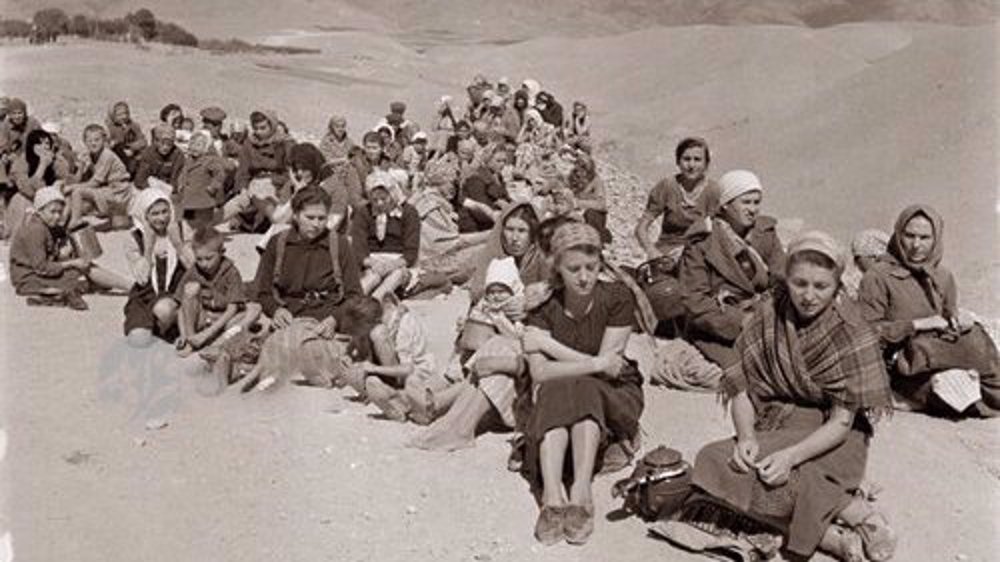
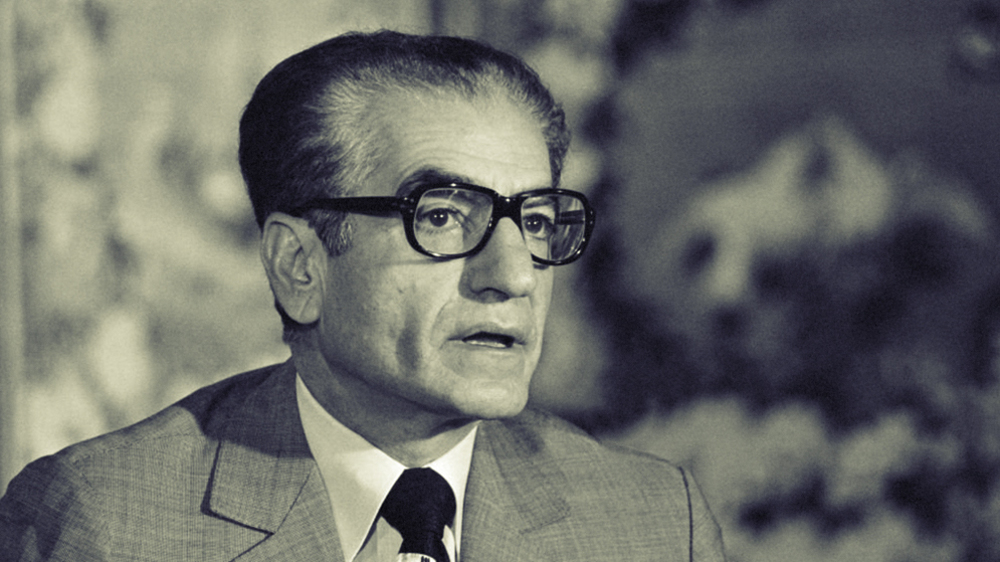

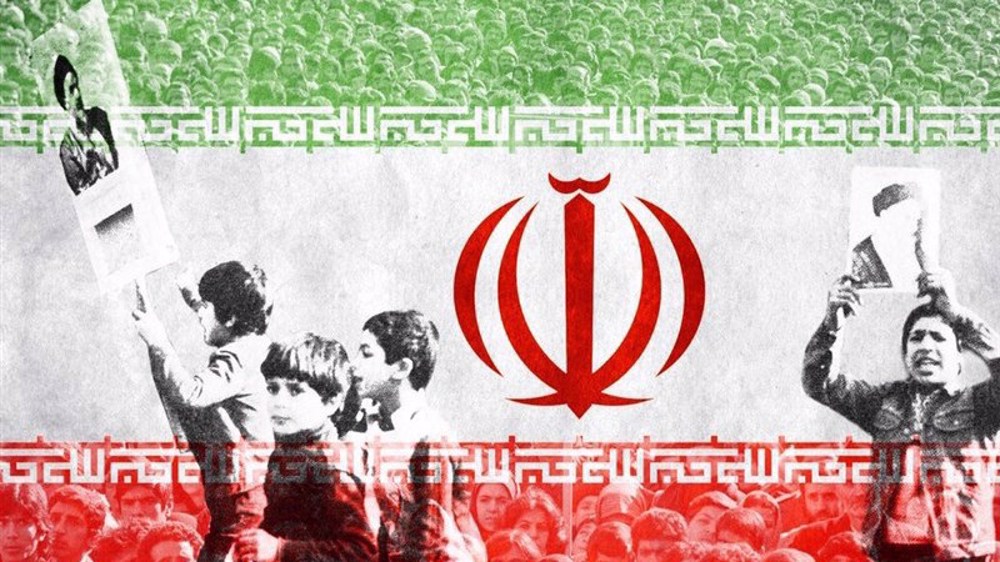



 This makes it easy to access the Press TV website
This makes it easy to access the Press TV website